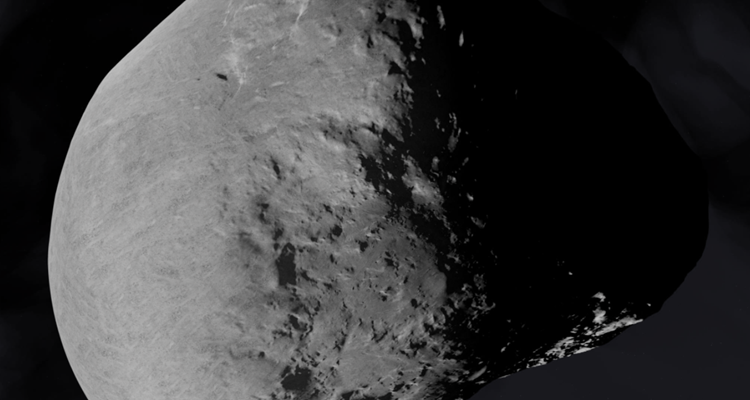Asteroid Bennu’s Impact: What Would Happen If It Hit Earth?

Scientists warn that a Bennu asteroid impact could trigger an “impact winter,” disrupt climate systems and threaten global ecosystems. Here’s what to expect.
The Looming Threat of Asteroid Bennu
A massive space rock, Bennu, is one of the most closely monitored near-Earth asteroids. Scientists estimate that this rocky celestial body, measuring approximately 500 meters (three-tenths of a mile) in diameter, swings past Earth every six years. While the likelihood of a collision remains low, the stakes are enormous—current calculations suggest a one-in-2,700 chance of impact in September 2182.
But what would happen if Bennu struck Earth? A new study published in Science Advances provides a sobering look at the catastrophic consequences, from widespread devastation to prolonged climate disruption.
Catastrophic Consequences of a Bennu Impact
If an asteroid of Bennu’s size were to collide with Earth, the immediate destruction would be immense. The impact would unleash powerful shockwaves, trigger massive earthquakes, and ignite widespread wildfires. The collision itself would carve out a crater miles wide, ejecting vast amounts of debris into the atmosphere.
However, the devastation would not end there. Researchers found that such an event could inject between 100 million and 400 million tons of dust into the sky, leading to dramatic shifts in global climate patterns.
“The solar dimming caused by dust would initiate an abrupt ‘impact winter,’ characterized by reduced sunlight, lower temperatures, and decreased precipitation,” explained Lan Dai, a climate scientist at the IBS Center for Climate Physics at Pusan National University in South Korea and the study’s lead author.
A Chilling Forecast: Climate Disruptions and Food Shortages
The study’s simulations predict that in a worst-case scenario, Earth’s average surface temperature could drop by approximately 7 degrees Fahrenheit (4 degrees Celsius). This dramatic cooling would be accompanied by a 15% decrease in global rainfall and a significant decline in plant photosynthesis—by as much as 30%.
Such disruptions could trigger food shortages, with crop failures on a massive scale. As plant life struggles to recover, disruptions would cascade through the food chain, endangering wildlife and human populations alike.
“The impact of an event like this would be similar to the most extreme volcanic eruptions in the past 100,000 years,” said Axel Timmermann, senior author of the study and director of ICCP. “It would likely cause global food insecurity for years.”
The Devastating Ozone Depletion
The effects of a Bennu collision wouldn’t stop at colder temperatures and food crises. Scientists warn that the atmospheric disturbances caused by such an impact could deplete Earth’s ozone layer by as much as 32%. The ozone layer serves as a crucial shield, protecting life from harmful ultraviolet (UV) radiation from the sun.
A weakened ozone layer would increase UV exposure, leading to higher rates of skin cancer, damage to marine ecosystems, and disruptions in agricultural productivity.
Oceanic Recovery: A Silver Lining?
Interestingly, while terrestrial plant life would struggle in the aftermath of the impact, some oceanic ecosystems could experience a temporary boost. The study suggests that iron-rich dust from the impact would fertilize the oceans, potentially triggering large-scale diatom (a type of algae) blooms. These microscopic plants are fundamental to the marine food chain and could help restore oceanic balance within six months.
“In contrast to the slow recovery of plant life on land, plankton populations would likely bounce back quickly, fueled by the influx of iron,” Dai noted.
Learning from the Past: The Dinosaur-Ending Impact
Bennu is far from the first asteroid to pose a threat to Earth. Approximately 66 million years ago, an asteroid estimated to be 6-9 miles (10-15 km) wide slammed into the Yucatán Peninsula, wiping out the dinosaurs and nearly three-quarters of all species on the planet. That catastrophic event set off a chain reaction of wildfires, acid rain, and global climate shifts that reshaped the course of life on Earth.
The potential impact of Bennu, while smaller in scale, would still be devastating. It would be enough to cause severe environmental, economic, and humanitarian crises worldwide.
NASA’s Plan for Planetary Defense
Recognizing the risk posed by asteroids like Bennu, NASA and other space agencies have ramped up efforts in planetary defense. In 2022, NASA’s Double Asteroid Redirection Test (DART) successfully altered the trajectory of the asteroid Dimorphos. This mission served as a proof of concept, demonstrating humanity’s ability to deflect potentially hazardous space rocks.
While Bennu’s impact probability remains low—only 0.037%—experts emphasize the need for continued monitoring and preparedness.
“It is important to think about the risk, even if the chances are small,” Timmermann stated. “The potential consequences are too severe to ignore.”
Preparing for the Unknown
The possibility of a Bennu impact may be centuries away, but understanding and planning for such threats is crucial. Ongoing research, advancements in asteroid detection, and the development of deflection technologies will be key to safeguarding our planet from cosmic hazards.
As space agencies refine their planetary defense strategies, one thing remains clear: vigilance, science, and international cooperation are our best tools in preventing a catastrophic asteroid impact.
Source: (Reuters)
(Disclaimer: The information in this article is based on publicly available research and scientific studies. While efforts are made to provide accurate insights, readers should refer to NASA and other official sources for the latest updates on asteroid monitoring and planetary defense.)
Also Read: The Surprising Origins of Dinosaurs: Tracing Their Beginnings in Gondwana










